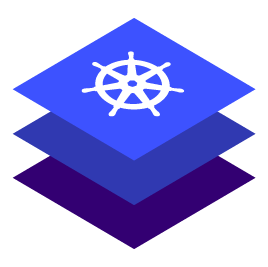Pre-provisioned Air-gapped: Create Managed Clusters Using the DKP CLI
After initial cluster creation, you have the ability to create additional clusters from the CLI. In a previous step, the new cluster was created as Self-managed which allows it to be a Management cluster or a stand alone cluster. Subsequent new clusters are not self-managed as they will likely be Managed or Attached clusters to this Management Cluster.
When creating Managed clusters, you do not need to create and move CAPI objects, or install the Kommander component. Those tasks are only done on Management clusters!
Choose a Workspace for the New Cluster
If you have an existing Workspace name, run this command to find the name:
⚠️ NOTE: If you need to create a new Workspace, follow the instructions to Create a Workspace.CODEkubectl get workspace -AWhen you have the Workspace name, set the
WORKSPACE_NAMESPACEenvironment variable:CODEexport WORKSPACE_NAMESPACE=<workspace_namespace>
Name Your Cluster
The cluster name may only contain the following characters: a-z, 0-9, ., and -. Cluster creation will fail if the name has capital letters. See Kubernetes for more naming information.
When specifying the cluster-name, you must use the same cluster-name as used when defining your inventory objects.
By default, the control-plane Nodes will be created in 3 different zones. However, the default worker Nodes will reside in a single Availability Zone. You may create additional node pools in other Availability Zones with the dkp create nodepool command.
Follow these steps:
Give your cluster a unique name suitable for your environment.
Set the environment variable:
export CLUSTER_NAME=<preprovisioned-additional>Create a Kubernetes Cluster
Once you’ve defined the infrastructure and control plane endpoints, you can proceed to creating the cluster by following these steps to create a new pre-provisioned cluster.
Before you create a new DKP cluster below, choose an external load balancer (LB) or virtual IP and use the corresponding dkp create cluster command.
In a pre-provisioned environment, use the Kubernetes CSI and third party drivers for local volumes and other storage devices in your data center.
DKP uses local static provisioner as the default storage provider for a pre-provisioned environment. However, localvolumeprovisioner is not suitable for production use. You should use a Kubernetes CSI compatible storage that is suitable for production.
After disabling localvolumeprovisioner, you can choose from any of the storage options available for Kubernetes. To make that storage the default storage, use the commands shown in this section of the Kubernetes documentation: https://kubernetes.io/docs/tasks/administer-cluster/change-default-storage-class/
The following command relies on the pre-provisioned cluster API infrastructure provider to initialize the Kubernetes control plane and worker nodes on the hosts defined in the inventory YAML previously created.
If your environment uses HTTP/HTTPS proxies, you must include the flags --http-proxy, --https-proxy, and --no-proxy and their related values in this command for it to be successful. More information is available in Configuring an HTTP/HTTPS Proxy.
This command uses the default external load balancer (LB) option:
CODEdkp create cluster preprovisioned --cluster-name ${CLUSTER_NAME} \ --control-plane-endpoint-host <control plane endpoint host> \ --control-plane-endpoint-port <control plane endpoint port, if different than 6443> \ --pre-provisioned-inventory-file preprovisioned_inventory.yaml \ --ssh-private-key-file <path-to-ssh-private-key> \ --registry-mirror-url=${REGISTRY_URL} \ --registry-mirror-cacert=${REGISTRY_CA} \ --registry-mirror-username=${REGISTRY_USERNAME} \ --registry-mirror-password=${REGISTRY_PASSWORD} \ --namespace=${WORKSPACE_NAMESPACE}Use the wait command to monitor the cluster control-plane readiness:
CODEkubectl wait --for=condition=ControlPlaneReady "clusters/${CLUSTER_NAME}" --timeout=30mOutput:
CODEcluster.cluster.x-k8s.io/preprovisioned-additional condition met
NOTE: Depending on the cluster size, it will take a few minutes to create.
Manually Attach a DKP CLI Cluster to the Management Cluster
Find out the
nameof the createdCluster, so you can reference it later:CODEkubectl -n <workspace_namespace> get clustersAttach the cluster by creating a
KommanderCluster:CODEcat << EOF | kubectl apply -f - apiVersion: kommander.mesosphere.io/v1beta1 kind: KommanderCluster metadata: name: <cluster_name> namespace: <workspace_namespace> spec: kubeconfigRef: name: <cluster_name>-kubeconfig clusterRef: capiCluster: name: <cluster_name> EOF
